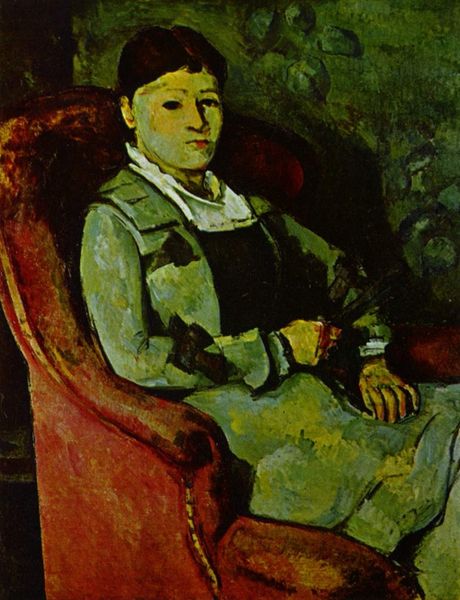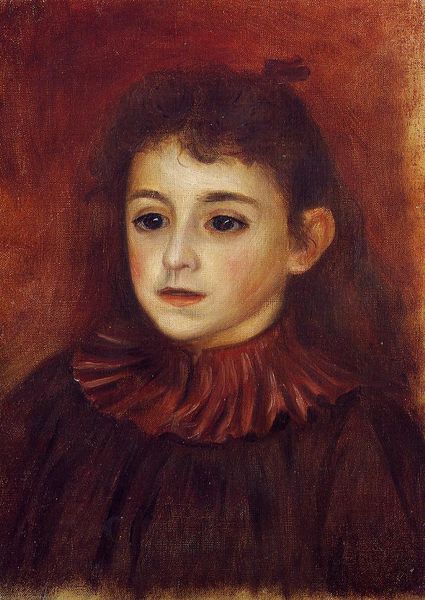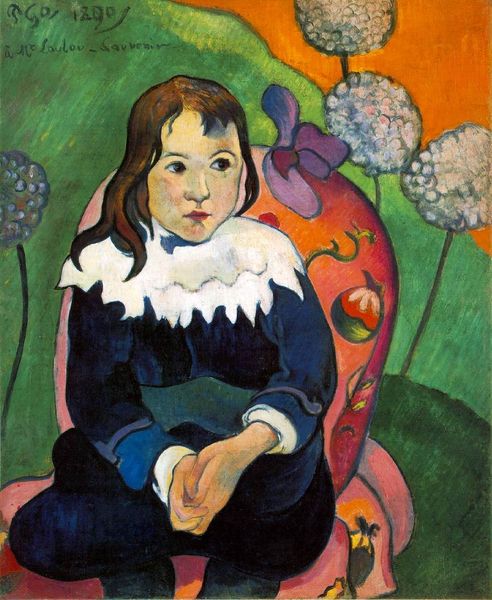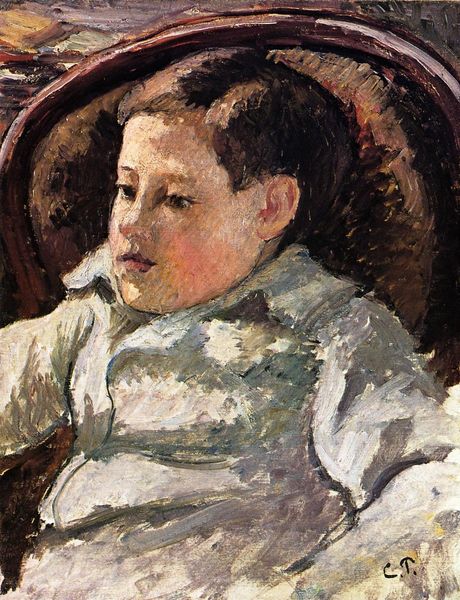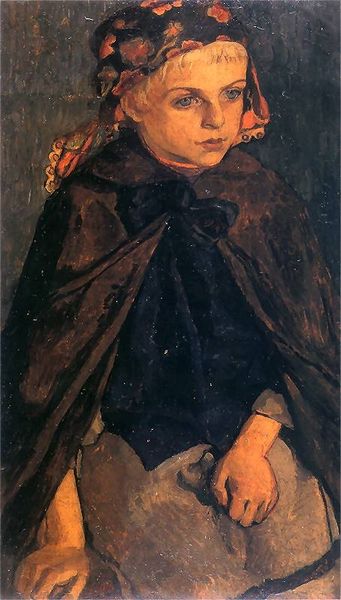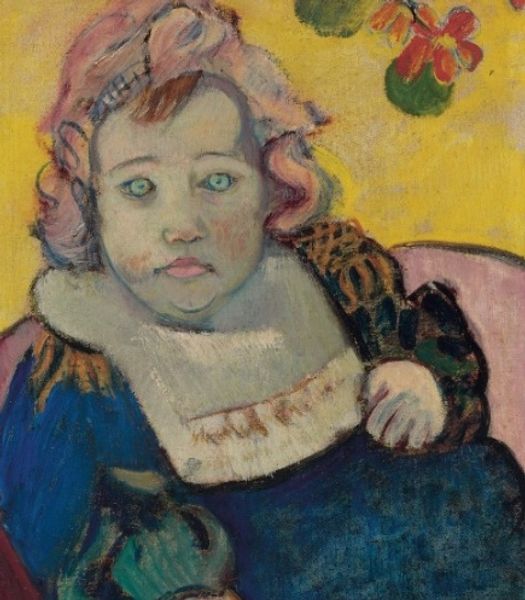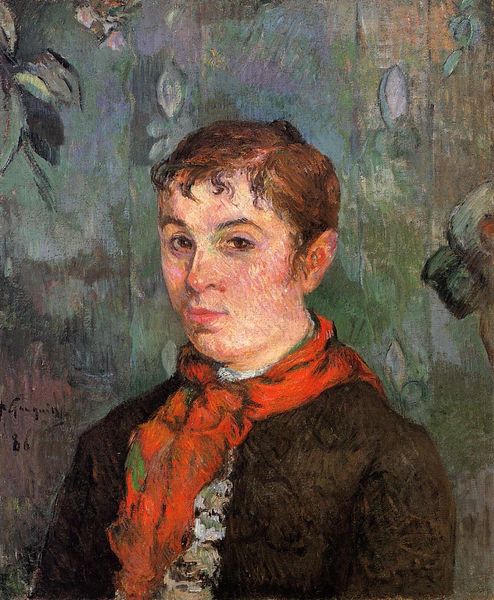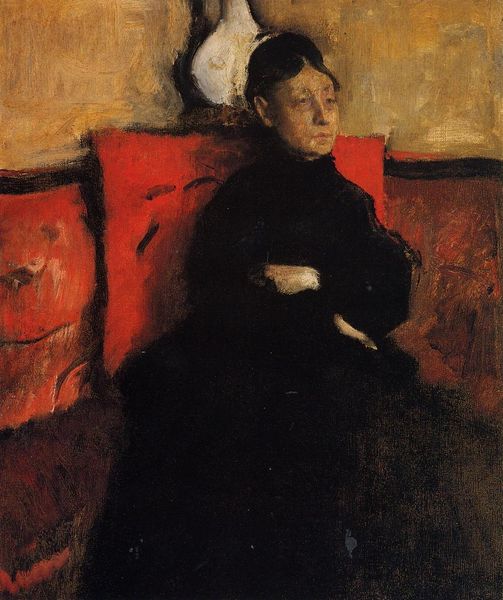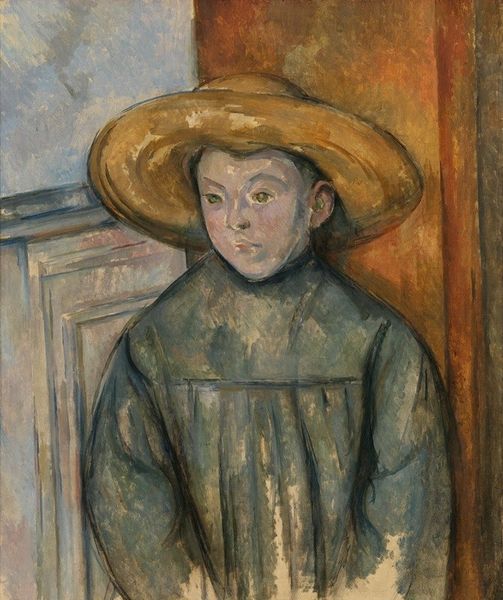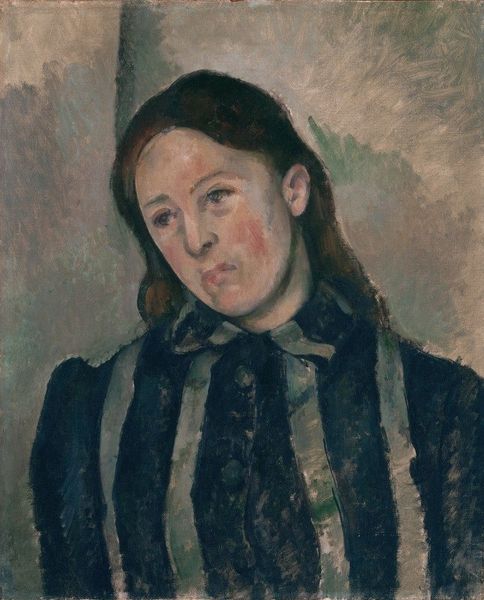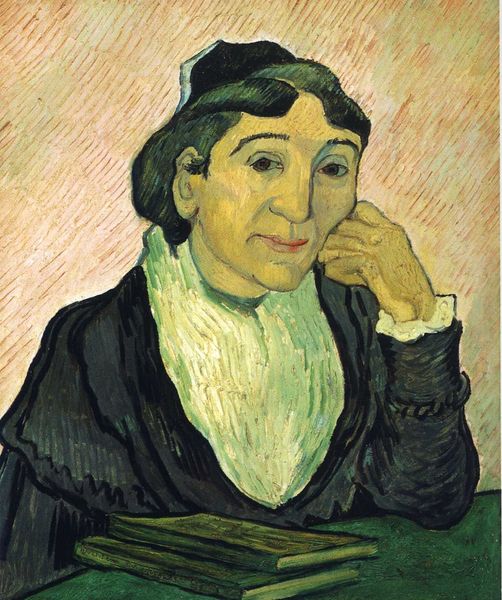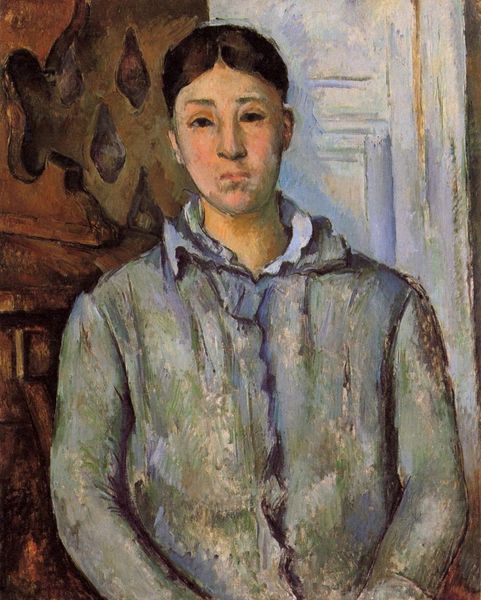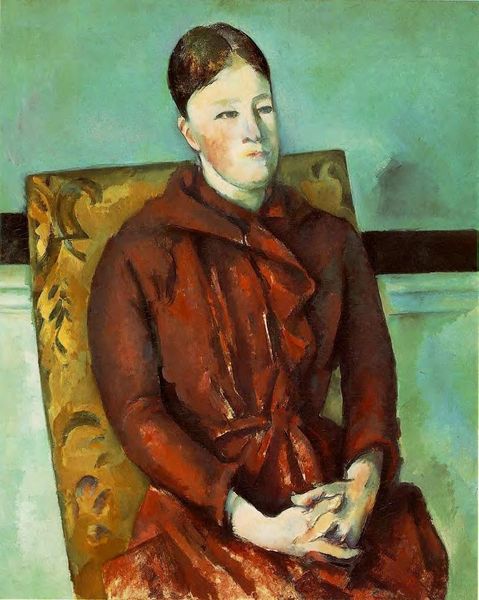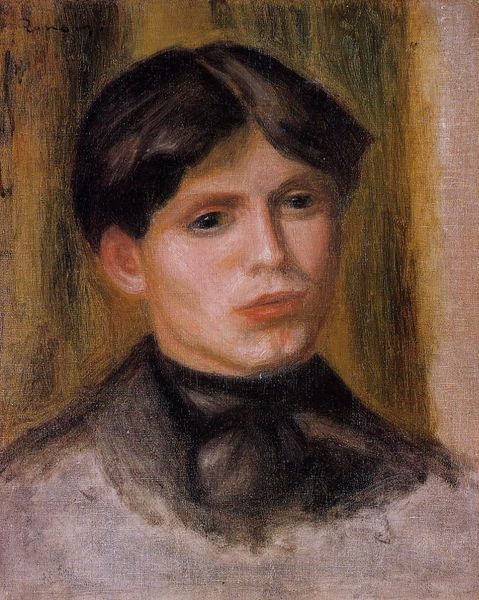
oil-paint
#
portrait
#
impressionism
#
oil-paint
#
oil painting
#
post-impressionism
Copyright: Public domain
Paul Cézanne captured his wife, Madame Hortense Fiquet Cézanne, in paint on canvas, in "Madame Cezanne in a Striped Robe". The striped robe, an emblem of domesticity, cloaks her figure, yet it hardly softens the cool distance in her gaze. Cézanne's marriage was not publicly acknowledged for many years, and Hortense’s portraits can be interpreted as studies of a woman confined by the social expectations of her time. While male artists were at liberty to explore and revolutionize their craft, their wives often found themselves relegated to the roles of muse and caretaker. What did it mean to be the wife of a genius, yet also to be in his shadow? The averted gaze adds to this sense of introspection and perhaps a quiet rebellion against societal expectations. In painting his wife, Cézanne invites us to consider not just her image, but her presence, her thoughts, and the silent dialogues that shape a life shared, yet distinctly individual.
Comments
No comments
Be the first to comment and join the conversation on the ultimate creative platform.
